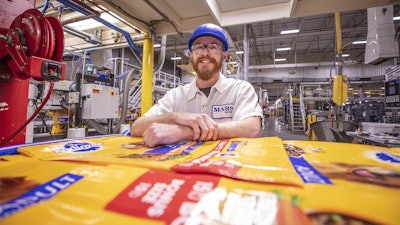
Manufacturers have widely embraced the Internet of Things (IoT), machine learning, and artificial intelligence to drive productivity, performance, safety, compliance, and to create better work conditions. And while this digitization of manufacturing processes has many benefits, one challenge is effectively using the data that is created by IoT. Mountains of data is often trapped in reports and spreadsheets, where it isn’t useful to frontline workers, or it’s out of date by the time it’s available so it lacks any real-time insights to inform decision making.
The unmet opportunity of these powerful technologies is to derive actionable insights that empower better decision-making, as well as the efficient sharing of lessons leaned once the insights are proven. To capture value from IoT, AI, and machine learning, many food manufacturers are adopting cloud-based mobile platforms that streamline the sharing of information across teams. According to Gartner Group, 36 percent of manufacturing enterprises realize above-average value from digitalization when compared to peers who don’t invest in this area.
Further, Gartner advises manufacturing organizations to leverage new digital technologies like analytics to drive growth and profitability. Here are three ways manufacturers can activate their untapped potential with useful insights that are specific, actionable, and delivered in the right place, to the right person, at the right time.
- Prescriptive Innovation, Shared Across the Organization. Manufacturers can increase overall organizational proficiency by sharing improvements with similar teams across different sites. Data and insights, ideally shared via a mobile continuous improvement platform, can allow food manufacturers to proactively leverage the knowledge obtained by one location with the whole company.
- Real-time Idea Matching. This involves proactively pushing matched ideas to individuals with similar roles, rather than relying on these individuals searching for solutions. Frontline workers can be more inspired and engaged when provided with a complete view of their team’s operational performance. A mobile CI platform keeps people informed with real-time, AI-powered calls-to-action that are appropriate for their job.
- Flexible Dashboards that provide a wide range of charts, reports, and tables. These tools allow users to use information in a variety of ways. Seeing this data can lead to prescriptive activities based on historical trends of improvement ideas and employee activity.
Cases in Point
One company that is taking the lead in manufacturing excellence is Heaven Hill – a Kentucky-based bourbon brewer that has been in business since 1935. This Rever, Inc. customer implemented a data and analytics-driven continuous improvement program earlier this year.
Shawn Hughes, Head of Continuous Improvement at Heaven Hill commented: "What we need is not more data, but more actionable insights. Rever is delivering that and is helping us make better, faster decisions about how to accelerate our improvement activity, and create greater impact through engagement of the frontline."
Additionally, Mars, Inc., with $33 billion in annual sales and currently the sixth largest privately held company in the United States, has used this type of platform to enable frontline workers to take responsibility and ownership of more areas of plant operations.
This includes an accelerated data and analytics-driven evaluation and approval process for quickly implementing improvement ideas, and driving overall employee engagement. The company has reportedly experienced a significant reduction in worker injuries, lower packaging spends, less downtime and it has implemented 315 new ideas submitted by employees.
According to Zoe Vizcarra, a Mars Continuous Improvement Manager, “Through simple dashboards, we can quickly identify a critical innovation or problem-solving activity so that we can make important operational decisions that are based on real-time information.”























